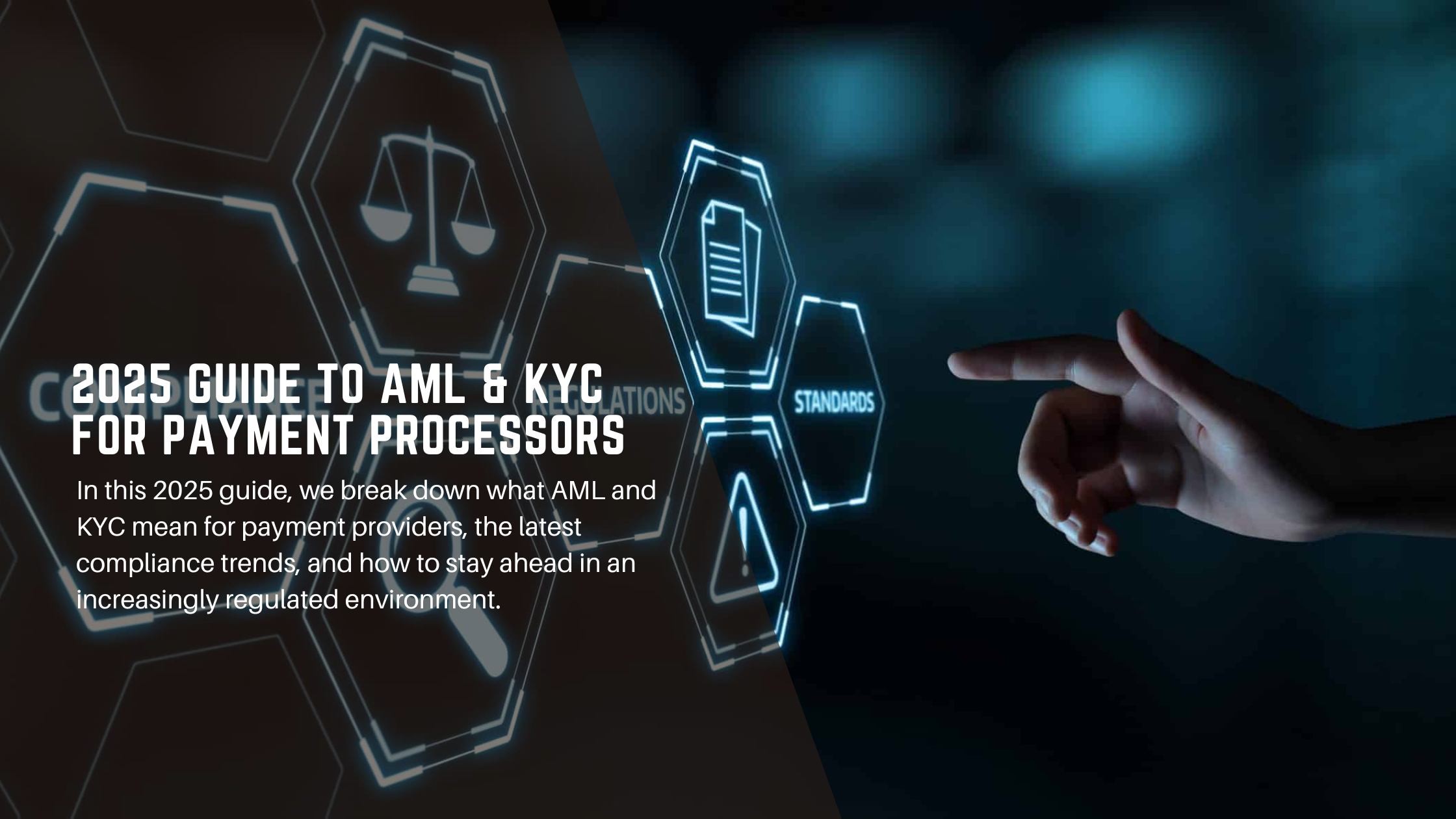January 17, 2026

-
Written by: Merchant Connect UK
- June 12, 2025
As digital payments continue to grow globally, so does the risk of fraud, money laundering, and financial crime. That’s why Anti-Money Laundering (AML) and Know Your Customer (KYC) compliance have become critical pillars for payment processors—especially in high-risk industries.
In this 2025 guide, we break down what AML and KYC mean for payment providers, the latest compliance trends, and how to stay ahead in an increasingly regulated environment.
What Is AML & Why Does It Matter?
Anti-Money Laundering (AML) refers to the laws, regulations, and procedures that financial institutions and payment providers must follow to prevent criminals from disguising illegally obtained funds as legitimate income.
In the payments industry, AML compliance ensures that your service isn’t being used to process illicit transactions—including funding from illegal gambling, fraud, drug trafficking, or terrorist financing.
What Is KYC in Payment Processing?
Know Your Customer (KYC) is a core part of AML. It involves verifying the identity of customers before allowing them to open an account, make transactions, or access services. This includes:
Verifying legal names and addresses
Collecting ID documents (passport, driving licence)
Performing background or risk checks
Ongoing monitoring for unusual or suspicious activity
For payment processors, KYC helps prevent fraud and builds trust with banks, regulators, and merchants.
Key AML/KYC Requirements for 2025
As of 2025, payment processors—especially those in the UK and Europe—must comply with evolving AML and KYC regulations, including:
1. Enhanced Due Diligence (EDD)
High-risk merchants (adult, gambling, crypto, forex, etc.) require deeper checks, such as:
Source of funds
Business model review
Ongoing transaction monitoring
2. Real-Time Risk Monitoring
Modern payment systems must include transaction screening tools to flag suspicious behaviour as it happens.
3. PEP & Sanctions Screening
All customers must be screened against databases of politically exposed persons (PEPs) and global sanctions lists.
4. Data Privacy Compliance (e.g., GDPR)
All KYC data must be stored securely and processed lawfully under data protection regulations.
5. Open Banking & Digital ID Verification
Open Banking APIs and biometric verification tools are becoming standard for fast, secure KYC onboarding.
Common AML/KYC Pitfalls for Payment Processors
Accepting unlicensed or unverified merchants
Inadequate documentation collection
Failing to flag large, unusual, or repeated transactions
Ignoring updates to local and global AML legislation
Poor record-keeping or audit trails
Non-compliance can lead to fines, banking bans, reputational damage—or even full business closure.
How Merchant Connect Helps with AML & KYC Compliance
At Merchant Connect, we work closely with acquiring banks, regulators, and high-risk merchants to ensure every payment solution we offer is fully compliant.
We support payment processors and platforms by:
Implementing KYC onboarding frameworks
Connecting you with AML-compliant banks and PSPs
Offering tools for ongoing transaction monitoring
Helping you stay ahead of FCA, EU, and global requirements
Whether you’re in adult, iGaming, crypto, or e-commerce, our team can tailor a solution that meets your regulatory obligations without slowing down your business.
Final Thoughts
AML and KYC are not just boxes to tick—they’re essential components of a trustworthy, long-term payment operation. As regulation continues to tighten in 2025 and beyond, payment processors must be proactive, not reactive.
Need support with AML/KYC for your payment platform or high-risk merchant account?
👉 Contact Merchant Connect today to speak with our compliance specialists.
Categories
- Banking(15)
- Industry Insights(39)
- Merchant Account(8)
- Online Payments(20)
Recent Post
December 4, 2025
Best Local Payment Methods for Global Expansion (LATAM, APAC, EU)
November 24, 2025
